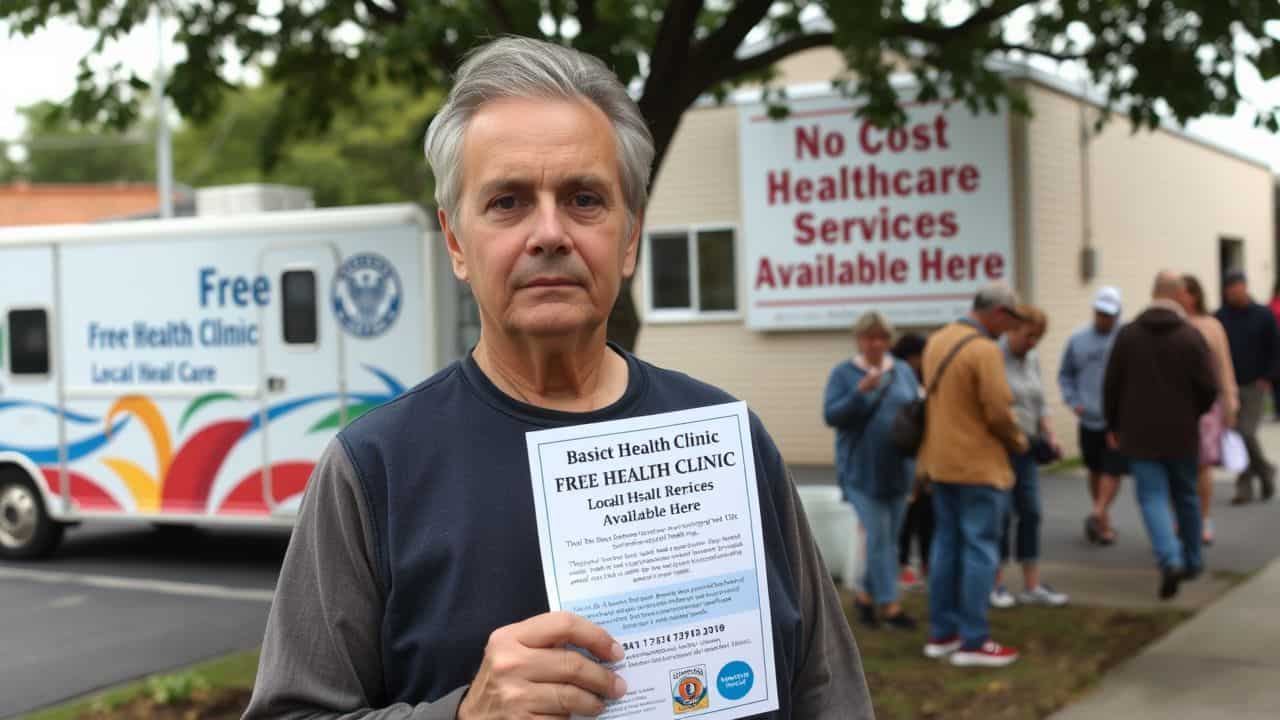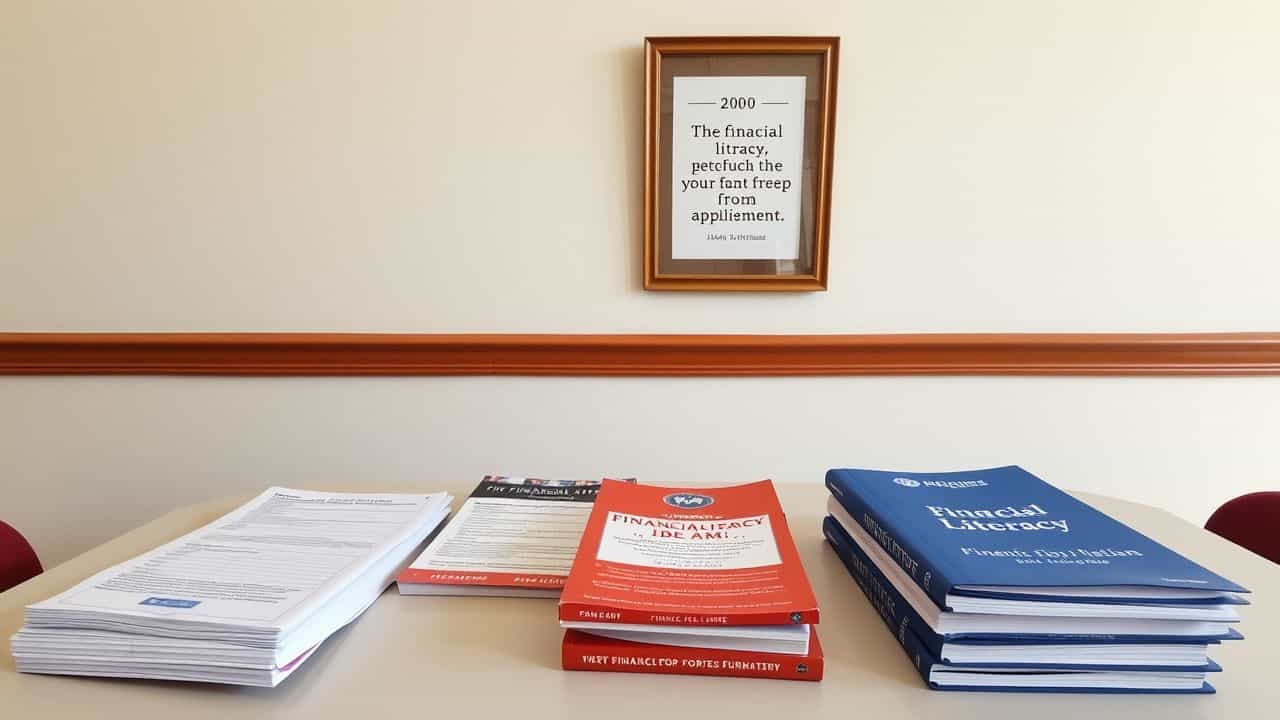Life without a home feels scary, but you’re not alone in this fight. Over half a million Americans face homelessness each day, dealing with tough choices about food, shelter, and safety.
This guide shows you how to get out of homelessness with clear steps for finding shelter, getting help, and building a stable future in 2024. We’ll walk this path together, from survival mode to lasting stability.
Key Takeaways
Call 2-1-1 right away to connect with local shelters, food banks, and health services that offer immediate help 24/7.
Housing First programs provide homes without requiring sobriety or employment first, while limiting rent to 30% of your income.
Build stability through job training programs like WIOA, which offers free skills training and job placement help at local centers.
Create a support network by joining peer groups, connecting with food banks, and working with case managers who track your progress.
Keep all important documents in a waterproof bag and join multiple housing waitlists since wait times can be long in most cities.
Table of Contents
Securing Immediate Shelter and Essential Services
Finding a safe place to sleep tonight starts with local shelters and emergency housing programs. You’ll need quick access to food banks, medical clinics, and basic supplies to keep yourself healthy and stable while you work on long-term plans.
Recovering from homelessness involves these key steps:
https://www.marinecu.com/blog/overcoming-homlessness/
Understand and address the underlying issues. Homelessness is often the result of multiple factors. …
Seek employment. …
Transition to housing stability. …
Pursue personal development. …
Make a long-term plan for financial security. …
Build a support network.
Locate Local Shelters and Housing Assistance

Getting a roof over your head starts with knowing where to look. Local shelters and housing programs offer vital first steps to stability, much like how some folks use creative homeless signs to get attention.
- Call 2-1-1 right now for instant help. This hotline works 24/7 and connects you to local homeless services and shelter options.
- Visit your area’s Continuum of Care (CoC) office. Look up your local CoC by typing your address on their website – they run most homeless programs in your area.
- Check out the Winter Shelter Program from December through March. These places give you a warm bed, hot meals, and basic care during cold months.
- Look into Safe Parking LA if you live in your car. They offer safe spots to park overnight with clean bathrooms and security guards.
- Go to your city’s housing department office. They can tell you about low-income housing spots and rent help programs.
- Stop by local churches and food banks. Many run their own shelter programs or know where to send you for help.
- Ask about HUD-VASH if you’re a veteran. This program gives housing vouchers and support services just for vets.
- Head to your local social services office. They help with housing and also connect you to food stamps (SNAP) and medical care.
- Join housing waiting lists right away. Many cities have long wait times, so put your name on multiple lists.
- Check out transitional housing programs. These offer temp housing while you work on getting back on your feet.
Access Food and Medical Care

Food and medical care form the basic building blocks of survival. Your health matters just as much as putting food on your plate.
- Call the 24/7 helpline 2-1-1 right now to find local food banks and health clinics near you. The trained staff will point you to free meals and medical help.
- Visit any Feeding America food bank in your area. These places give out free groceries, hot meals, and often connect you to other help services.
- Apply for SNAP benefits by calling 1-800-221-5689. This program puts money on a card you can use to buy food at most grocery stores.
- Stop by a free health clinic listed in the HRSA database. These clinics treat basic medical problems without asking for money or insurance.
- Look up the National Healthcare for the Homeless Council‘s list for your state. They run clinics that know how to help people without homes.
- Ask food bank staff about WIC if you have kids. This program gives you healthy food plus advice about feeding your family.
- Find a local clinic that offers mental health services. Many places now give free counseling and drug treatment help.
- Check if your nearest shelter has a medical team. Some shelters partner with doctors who make regular visits.
- Take advantage of mobile health units. These medical vans often park near shelters and soup kitchens to give basic care.
- Keep your medical records in a waterproof bag. This helps doctors give you better care at each visit.
Developing a Stability Plan

A solid stability plan works like a roadmap to get you back on your feet. Your case manager will help you break down big goals into small, daily steps that match your needs and current situation.
Define Personal Goals and Needs

Setting clear goals helps you move forward step by step. Start with basic needs like stable housing and steady income before tackling bigger dreams. Your goals should match what matters most to you right now.
Many people focus on housing stability and financial security as their main targets. Health goals often rank high too, especially for those dealing with chronic medical conditions or mental illness.
Break down your needs into small, doable chunks. Think about what you need today, next week, and next month. Social welfare programs can help meet these needs while you work on long-term plans.
Talk to case managers about your goals – they’ve helped others succeed before. Studies show people do better when they set realistic goals that match their current situation. Focus on what you can control right now, like job hunting or getting medical care.
Connect with Social Services and Case Managers
 Social services can lift you out of tough spots faster than going it alone. Case managers work as your personal guides to link you with the right help at the right time.
Social services can lift you out of tough spots faster than going it alone. Case managers work as your personal guides to link you with the right help at the right time.
Find a Local Case Manager
- Visit your city’s Department of Social Services
- Ask at homeless shelters about case management
- Call 988 for quick connections to local help
Gather Your Documents
- Birth certificate and ID
- Social Security card
- Any medical records
- Past housing records
Tell Your Story Once
- Case managers save you from repeating your story
- They keep your info private
- You’ll get matched to programs that fit your needs
Get Help With Benefits
- SOAR program speeds up disability benefits
- Food stamps (SNAP) applications
- Housing voucher programs
- Medical care access
Make an Action Plan
- Set clear, small goals with deadlines
- Track your progress weekly
- Adjust plans as needed
- Stay in touch with your case manager
Use PATH Program Support
- Free mental health services
- Help finding housing
- Job search assistance
- Substance abuse treatment if needed
Build Your Support Team
- Regular check-ins with case managers
- Connect with peer support groups
- Join community programs
- Link up with job training services
Keep Good Records
- Save all paperwork
- Write down appointment dates
- Track program deadlines
- Note contact information
Investigating Housing Solutions

Finding a stable home starts with knowing your housing options. Local housing agencies offer programs like Section 8 vouchers and low-income apartments that can help you move from shelters to your own place.
Explore Transitional Housing Options

Transitional housing offers a stepping stone between emergency shelters and permanent homes. Programs like Penny Lane Centers give you a real shot at getting back on your feet, especially if you’re a young adult looking for stability.
- Local transitional housing programs support residents for up to 18 months, giving you time to rebuild your life. Many offer private living spaces, just like Penny Lane’s individual apartments for each family.
- Social workers and case managers work with you one-on-one to create a success plan. They’ll help you set goals, find jobs, and learn money management skills – crucial steps for help for single fathers.
- Most programs include free life skills classes to boost your chances of success. You’ll learn about budgeting, job hunting, and home maintenance while getting support from others in similar situations.
- Housing costs stay low through government subsidies and nonprofit support. This lets you save money while working toward your goals.
- Many programs offer extra perks like on-site childcare during classes and job training. These services make it easier to focus on improving your situation.
- Your case manager will help you look for permanent housing before your program ends. They’ll connect you with affordable housing lists and rental assistance programs.
The next big step after securing transitional housing focuses on finding long-term housing solutions through permanent supportive housing programs.
Learn About Permanent Supportive Housing Programs

Moving beyond temporary shelter opens doors to lasting stability. Permanent supportive housing offers a real shot at ending homelessness for good – just ask my friend Mike, who once slept behind McDonald’s dumpsters but now has his own apartment through a housing program.
- Housing First Programs match you with an affordable home right away, without making you get sober or find work first. These programs cut chronic homelessness and save public money on emergency services.
- On-site Support Teams help you stay housed by connecting you to doctors, job training, and counseling. You’ll work with case managers who know how to help homeless veterans and others get back on their feet.
- Rent Help keeps housing costs low through subsidies, usually limiting your payment to 30% of your income. Low income shouldn’t stop you from having a safe place to call home.
- Life Skills Training builds your independence through classes on budgeting, cooking, and home care. Many homeless people find these practical skills vital for long-term stability.
- Healthcare Access comes built into most programs, linking you to medical care and mental health support. This tackles both housing and health needs at once.
- Community Integration helps you build local connections through social activities and peer support groups. Strong community ties boost your chances of staying housed.
- Job Support services help you find work or job training to increase your income. Better employment means more housing options down the road.
- Family Services assist parents in keeping their kids together under one roof. Family preservation matters – housing programs know this.
- Flexible Length of Stay lets you keep your home as long as needed. Some folks need a few months, others need years of support to get fully stable.
- Success Planning helps map out your goals for independent living. Your case manager will help track your progress toward complete self-sufficiency.
Enhancing Employment and Financial Health

Getting back on your feet starts with a steady paycheck and smart money moves. Local job training programs and financial coaches will help you build the skills to land work and handle your cash like a pro.
Seek Job Training and Employment Opportunities

Landing a job stands as your ticket to stable housing and a better life. The Department of Labor’s research proves that job training programs boost employment rates and housing stability for homeless individuals.
Sign up for WIOA Programs
- These free programs offer job skills training
- You’ll learn both technical and people skills
- Local job centers help you find these programs
Build Basic Job Skills
- Learn computer basics at your local library
- Practice typing and email writing
- Master common office software programs
- Take free online courses through community centers
Try Vocational Training
- Pick a trade that interests you
- Learn hands-on skills like plumbing or carpentry
- Many programs offer job placement help
- Some programs provide tools to start working
Join Employment Programs
- Look for programs that match you with jobs
- Ask about paid training opportunities
- Connect with job coaches who understand your situation
- Get help with interview clothes and transportation
Improve Your Work Skills
- Learn teamwork through group projects
- Practice clear communication
- Build problem-solving abilities
- Show up on time and ready to work
Use Job Search Resources
- Visit your local library’s job search computers
- Ask about resume writing help
- Practice interviews with staff members
- Look for job fairs in your area
Connect with Support Services
- Find programs that offer work clothes
- Ask about bus passes or transportation help
- Look for child care assistance if needed
- Get help with work-related documents
Focus on Growth Options
- Look for jobs with training programs
- Ask about advancement opportunities
- Learn new skills on the job
- Build good relationships with coworkers
Manage Debt and Budget Finances
Money troubles can feel like a heavy weight on your shoulders. Smart money moves in 2024 will help you break free from homelessness and build a stable future.
- Track every dollar you spend using Money Sensei® or a simple notebook. This helps you spot areas where you can cut back.
- Create a basic budget that puts food and shelter first. The Supplemental Nutrition Assistance Program can help with food costs while you save.
- Deal with old debts head-on through free financial coaching. Credit & Debt® offers no-cost help to review your credit history and make a payoff plan.
- Open a free checking account at a local bank or credit union. This keeps your money safe and helps you avoid check-cashing fees.
- Save $5-10 from each paycheck or assistance payment. Small amounts add up fast and create a safety net.
- Look for free money management classes at community centers. Many places offer basic courses on budgeting and saving.
- Use AI tools to watch your spending patterns. These programs spot ways to save money you might miss.
- Ask for help from financial coaches to set clear money goals. They’ll help you make a plan that works for your situation.
- Check if you qualify for subsidized housing programs. This can lower your housing costs while you build savings.
- Learn about debt management through local social services. Many organizations help people escape cycles of poverty.
Your next step involves building a strong network of people who support your goals.
Forming a Strong Support Network

You need good people in your corner to beat homelessness. A strong network of community support, from local volunteers to social workers, can open doors to housing, jobs, and vital resources that speed up your path to stability.
Engage with Community Organizations and Peer Groups
Community groups can lift you up during tough times. Local organizations offer more than just basic help – they build lasting connections that matter.
Join Local Support Groups
- Meet twice weekly with peers who share similar experiences
- Share stories and coping tips in a safe space
- Learn from others who have found housing stability
Connect with Food Banks
- Get regular meals and grocery assistance
- Network with volunteers who may know about job openings
- Learn about other local resources and programs
Visit Drop-in Centers
- Access computers and phones for job searches
- Take showers and do laundry
- Meet with social workers who can guide your next steps
Team Up with Volunteers of America
- Get matched with a personal mentor
- Access job training programs
- Find housing assistance programs in your area
Attend Community Events
- Build social connections at local gatherings
- Meet potential employers or landlords
- Learn about new housing programs and opportunities
Link with Faith-Based Groups
- Access food pantries and clothing closets
- Find temporary shelter options
- Connect with caring community members
Join Peer Support Programs
- Learn from others who overcame homelessness
- Build your support network
- Find emotional strength through shared experiences
Participate in Community Forums
- Speak up about housing needs
- Meet local leaders and advocates
- Help shape solutions for your community
Utilize Family and Friends as Support Resources
Your loved ones can be your strongest lifeline during tough times. Family and friends often want to help, but might not know how. Tell them exactly what you need – maybe it’s a couch to crash on, a ride to job interviews, or just someone to talk to.
Many people feel shame about asking for help, but reaching out shows real strength and resilience.
True friends and family are like stars – you don’t always see them, but you know they’re there when you need them most.
Building a support system starts with honest conversations. Share your goals and plans with trusted friends or relatives who can offer emotional backing. They might connect you to job leads, housing options, or other resources you hadn’t considered.
Libraries and food pantries can help you find more local support groups too. Your social circle can grow bigger through these community spaces, creating more chances for stability and growth.
People Also Ask
What help can I get if I’m homeless in California?
California offers many ways to help. You can get food assistance from local food banks. Many groups also give shelter and other aid. Look for places that help homeless persons find jobs and homes. Some spots even help with education to get you back on your feet.
I’m thinking of running away from home. What should I know?
Running away might seem like a fix, but it often leads to bigger troubles. If you face violence at home, talk to a trusted adult first. There are foster care programs and foster family options that can give you a safe place to stay while things get sorted out.
How can I find safe shelter when I have no home?
Start by calling 211 for help. This social issue needs quick action. Look for local shelters that match your needs. Some places offer both beds and help with getting stable. They can guide you to food assistance and other aid too.
What steps should I take to get off the streets?
First, get safe shelter and food assistance. Next, work on getting ID papers if you need them. Look into education or job training programs. Many groups help with this social issue. Take small steps each day. Remember, getting stable takes time, but help is out there.
References
https://lacity.gov/residents/community-assistance/homeless-services
https://endhomelessness.org/how-to-get-help-experiencing-homelssness/
https://pmc.ncbi.nlm.nih.gov/articles/PMC11425782/
https://pmc.ncbi.nlm.nih.gov/articles/PMC6217826/
https://www.samhsa.gov/homelessness-programs-resources
https://www.huduser.gov/portal/periodicals/em/spring-summer-23/highlight2.html
https://homelesssolutions.org/how-we-help/transitional-housing-program/
https://pmc.ncbi.nlm.nih.gov/articles/PMC11277256/
https://endhomelessness.org/ending-homelessness/solutions/permanent-supportive-housing/
https://pmc.ncbi.nlm.nih.gov/articles/PMC10710540/
https://www.hudexchange.info/homelessness-assistance/employment/
https://creditanddebt.org/library/budgeting/how-to-get-out-of-debt-and-manage-finances-in-2024/
https://www.linkedin.com/pulse/rethinking-money-my-path-financial-stability-philip-anderson-agzre
https://reachma.org/blog/homelessness-creating-a-path-to-healing-and-stability/

